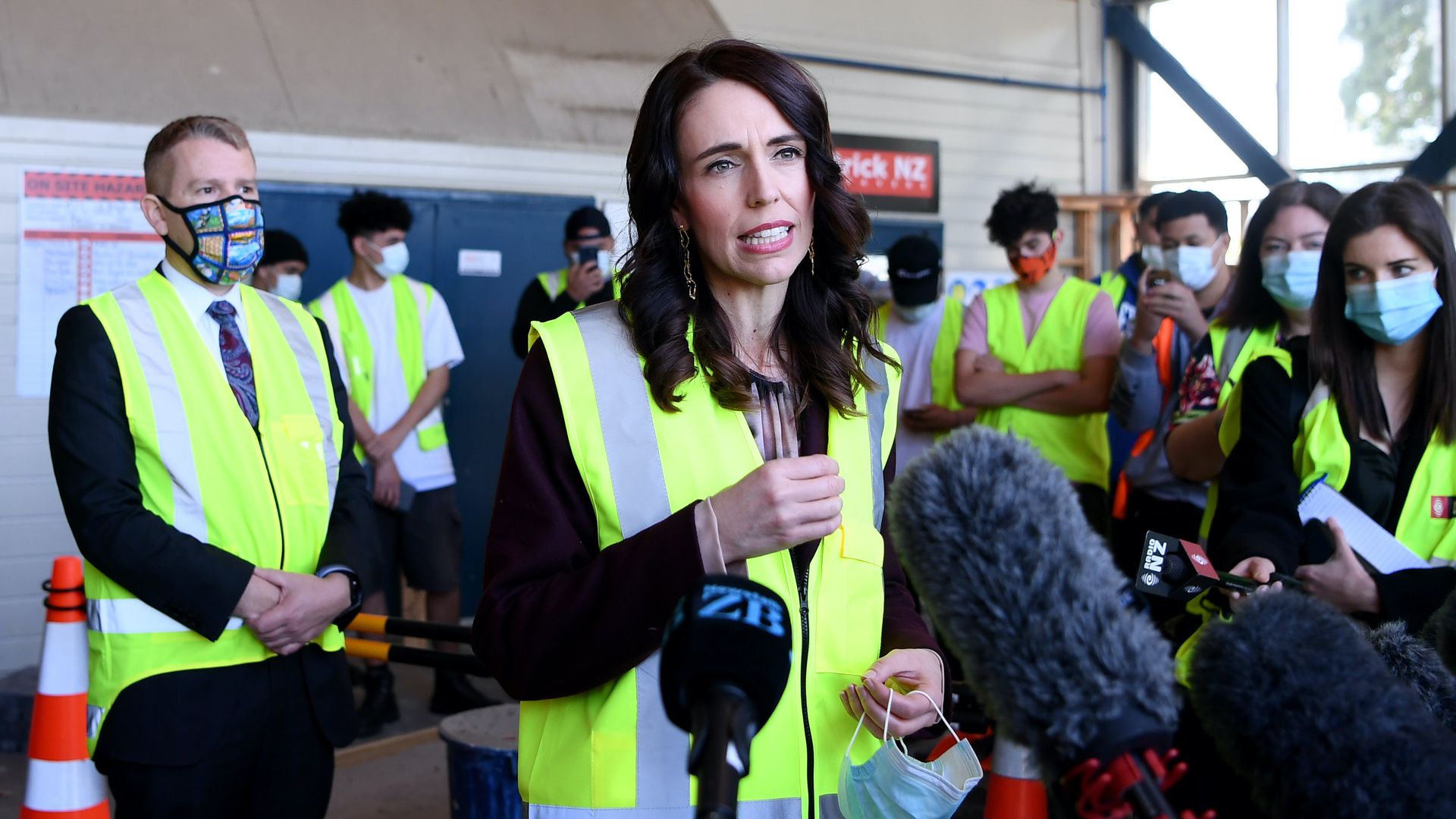Prime minister pledges 100% renewable energy generation in New Zealand by 2030
Add Axios as your preferred source to
see more of our stories on Google.

New Zealand Prime Minister Jacinda Ardern at the Manukau Institute of Technology in Auckland, New Zealand, this month. Photo: Hannah Peters/Getty Images
New Zealand's prime minister has pledged to achieve 100% renewable energy in the country by 2030 if her party wins re-election in October.
Why it matters: NZ plunged on Thursday into its worst recession in over 30 years, after its GDP fell 12.2% following two straight quarters of negative growth amid some of the world's toughest pandemic restrictions, though the drop was less than the 23.5% decrease projected in the May budget.
- Prime Minister Jacinda Ardern said during a briefing Thursday that the focus was now "about the rebound."
- Robert McLachlan, a professor at Massey University's School of Fundamental Sciences, told Axios Labour's decision to bring its renewable energy goal forward by five years for its COVID-19 economic recovery plans is "ambitious, but it's doable."
The big picture: Ardern said in a statement announcing the plans, "The COVID-19 economic recovery represents a once in a generation opportunity to reshape New Zealand’s energy system to be more renewable faster, affordable and secure."
- New Zealand already produces 84% of its electricity from renewable sources, but Labour has pledged NZ$70 million (U.S. $47 million) to "accelerate a potential dry year storage solution," such as a pumped hydro scheme at Lake Onslow on the South Island.
Zoom in: Judith Collins, leader of the opposition National Party, told RNZ Labour's policy would see electricity costs rise by up to 40% and predicted thousands of people would lose their jobs as a result.
- Energy Minister Megan Woods said in an emailed statement to Axios that Labour was investigating the pumped hydro scheme to "shift away from our reliance on expensive fossil fuels and enable the development of more renewable generation."
- "We believe this can lead to lower electricity prices over the longer term and accelerate the electrification of our economy," she added.
"If we proceed with the Lake Onslow project it is likely to create between 3,500 and 4,500 construction jobs, the initial investigation phase itself would employ hundreds of engineers and consultants."— Energy Minister Megan Woods
Between the lines: McLachlan said analysis by the expert proposing the Lake Onslow scheme "suggests that it will actually lower" electricity prices. This notes claims a 40% rise in costs for renewable electricity are inaccurate as they do not account for a pumped hydro scheme.
- "Even counting the cost of building it, you could still lower electricity in the long-run because you just end up with a much more robust system," McLachlan said.
- "At the moment, we have .... what’s called the dry air risk. If there's a year of low rainfall, which happens every five or 10 years, there’s actually not enough electricity to go around, so the prices go really high and there’s a shortage."
The bottom line: McLachlan said the Lake Onslow scheme would be a longterm solution "that has the capacity to almost completely de-carbonise the whole society."
For the record: Ardern delayed the country's election until Oct. 17 as authorities work to stamp out a coronavirus cluster in NZ's most populous city, Auckland, after the virus' re-emergence in NZ.
